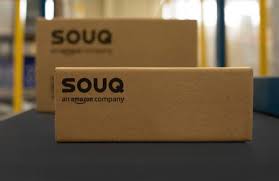Over a month since its eagerly awaited debut, Amazon’s foray into South Africa’s e-commerce landscape has stirred curiosity rather than causing a major shake-up. The introduction of this retail behemoth initially created substantial excitement, but early indications show a more deliberate, cautious rollout.
This gradual and methodical entry contrasts with the anticipated rapid expansion. Instead, the tech titan appears to be adopting a slow and steady tactic, leading many to ponder whether this is a strategic decision or a lost opportunity.
In the setting of South Africa’s flourishing online shopping environment, Amazon’s approach becomes particularly significant. According to Discovery Bank’s SpendTrend24 report, South African consumers are well-acquainted with Amazon, often shopping on its US website—making it the third most visited e-commerce site in the nation, as per the report.
The online shopping industry is experiencing robust growth, with an impressive 9.3% annual increase, surpassing the global rate. It is expected to exceed USD 6.4 billion in value by 2028. Given this thriving market and its established customer base, Amazon has taken a keen interest.
“Establishing solid relationships with South African brands and businesses of all sizes is crucial to us. We aim for Amazon.co.za to become the platform where they can connect with millions of customers,” stated Robert Koen, Amazon’s managing director for sub-Saharan Africa, at the official launch last month.
Amazon, however, is contending with a strong local rival in Takealot, which is supported by Naspers. Takealot, the current leader in South African e-commerce, boasts a significant edge through its “local expertise,” highlighted by Andy Higgins, a co-founder of Takealot and MD of Bob Group. He further noted that Takealot has a deep understanding of the South African market’s intricacies and taps into a sense of local pride to appeal to its customers.
Industry experts have pointed out that while Amazon’s initial approach in South Africa was strategically sound, it lacked a definitive edge. Initiatives like forming partnerships with local logistics firms, welcoming both local and international sellers in about 20 product categories, and offering free delivery as an introductory promotion were good starting points. However, these steps have not provided a compelling reason to switch from Amazon’s established US platform, where, according to early reports, some products are even cheaper.
Moreover, Amazon’s choice to not roll out its Prime membership with its South African launch—therefore withholding media benefits and exclusive Prime-only services such as free shipping on a wide range of products—may hinder its ability to differentiate itself and maintain customer loyalty.
Takealot quickly responded by introducing TakealotMORE, a subscription service that offers various membership levels with free and express delivery options. Takealot Group CEO Frederik Zietsman stated that this initiative is intended to transform the online shopping landscape by setting new standards for convenience and value.
Although Google Trends data indicates that Takealot still holds a significant lead in searches, it would be premature to discount Amazon. Known for their operational excellence, financial strength, and global influence, Amazon has a track record of entering new markets and establishing dominance. Higgins warned that Amazon’s international capabilities could lead to major market changes, particularly if they choose to buy a local logistics firm.
The gradual expansion strategy adopted by Amazon might be a strategic decision. Experts in the industry suggest that this approach enables them to collect valuable market insights, fine-tune their services, and potentially establish a stronger local presence. Nevertheless, it remains to be seen if this conservative approach will succeed against Takealot’s prevailing market leadership and the distinct tastes of South African online consumers.
 We just launched our WhatsApp channel. Want to get the latest news from the Tech in Africa?
We just launched our WhatsApp channel. Want to get the latest news from the Tech in Africa?



